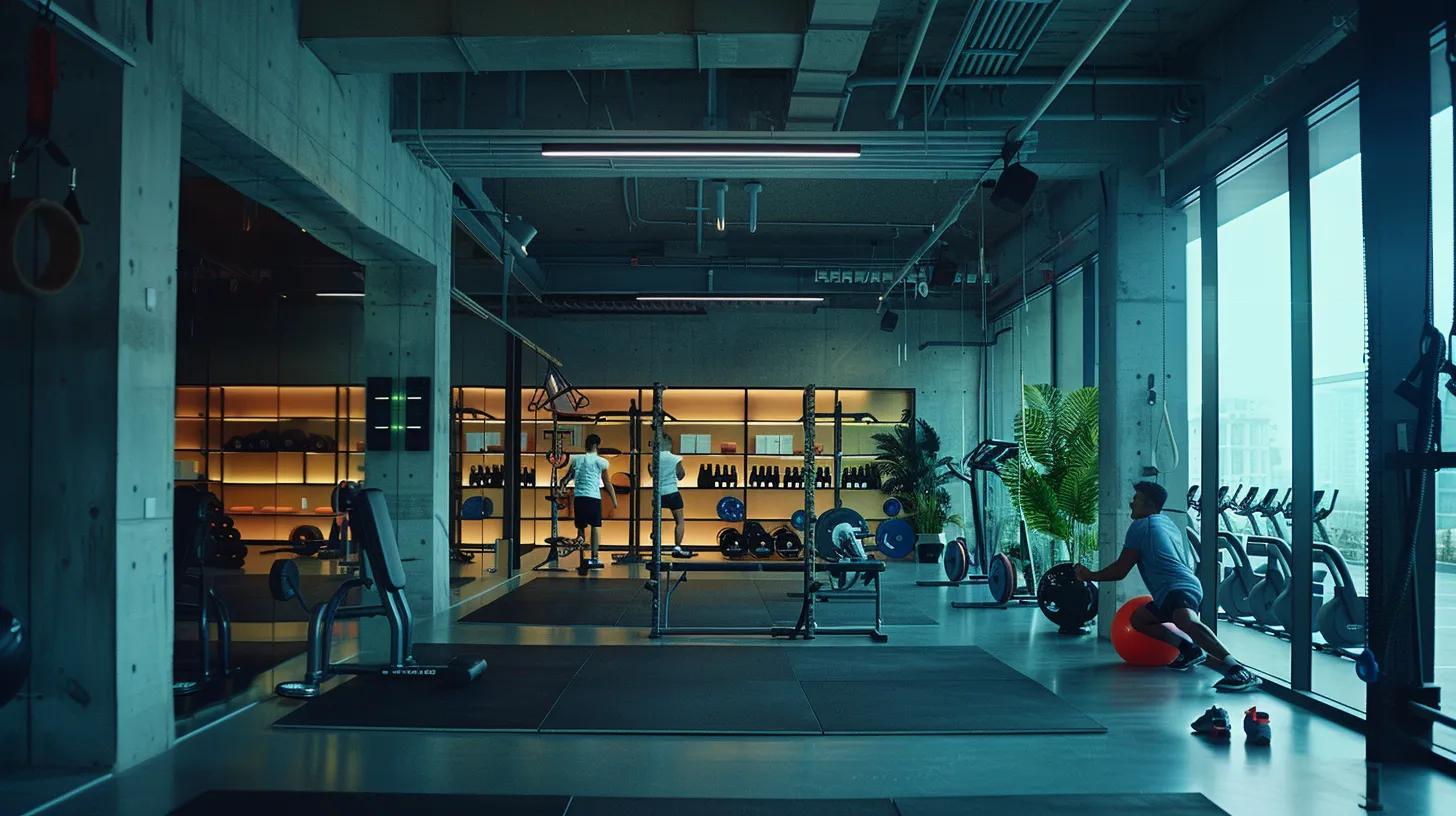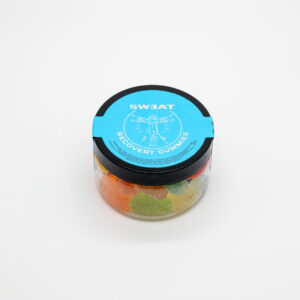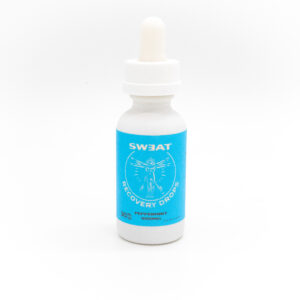CBD, or cannabidiol, has garnered attention for its potential therapeutic benefits, especially among individuals seeking support for various health concerns. This non-psychoactive compound derived from the cannabis plant is widely recognized for its anti-inflammatory, analgesic, and anxiolytic properties. Users often turn to CBD for alleviating symptoms associated with chronic pain, anxiety, sleep disorders, and even sports-related injuries. Many athletes have integrated CBD into their recovery toolkit as they believe it may help speed up recovery time, reduce muscle soreness, and enhance overall performance. Understanding effective dosing is essential, as individual needs can vary significantly. It is commonly recommended that users start with a low dose, typically around 10-20 mg per day, and gradually adjust based on their body’s response.
Incorporating CBD supplements into a recovery regimen requires a thoughtful approach. Experts suggest maintaining a consistent use pattern to fully gauge its effects, which may take several weeks for optimal results. The recovery period can differ from one person to another, depending on factors such as the individual’s body chemistry and the severity of their conditions. Some users report noticeable improvements in as little as a week, while others may need a month or more to experience the full range of benefits. For those considering CBD as a recovery supplement, it’s important to pay attention to the body’s signals and consult with a healthcare professional for personalized advice. By integrating CBD into a well-rounded recovery dietary supplement toolkit, individuals can enhance their overall wellness strategy, complement their training efforts, and promote a balanced lifestyle.
Table Of Contents:
- CBD Products, Athletic Performance, and Exercise Recovery: An in-Depth Look
- Understanding CBD’s Role in Fitness Regimens
- Assessing How CBD Formulations Could Alter Your Workout Experience and Output
- Optimizing Post-Exercise Recuperation Through CBD Use
- Athlete Testimonials and Consumer Feedback on CBD Workout Supplements
- Final Thoughts
- Frequently Asked Questions
CBD Products, Athletic Performance, and Exercise Recovery: An in-Depth Look
In recent years, there has been a significant surge in the popularity of CBD products among athletes and fitness enthusiasts. As more health professionals and researchers analyze the potential benefits of cannabidiol (CBD), many are turning to cbd as an alternative aid for workout recovery, inflammation reduction, and overall exercise performance. In fact, some athletes are even exploring options like sweat oil to enhance their training routines. With scientific studies demonstrating its ability to help manage inflammation, stress, and oxidative damage, CBD is emerging as a promising component in fitness regimens. Additionally, CBD’s potential to improve sleep quality (with innovations such as
), regulate muscle recovery, and support mental focus has led to increased interest in its usage as part of a holistic training and recovery strategy. This article examines how CBD products can support athletic performance, exploring the various ways in which different formulations work in alignment with fitness goals. Through a careful analysis of product types, underlying mechanisms, and consumer testimonials, the following sections provide a comprehensive look at integrating CBD into workout routines while adhering to a high standard of transparency and scientific rigor. The discussion is supported by peer-reviewed studies, expert opinions, and detailed explanations of each concept so that readers can form a clear understanding of how CBD might benefit their physical performance and recovery. Let’s dive into how CBD interacts with the body, the differentiation among products, and the uniqueness of these formulations compared to traditional sports dietary supplement
Understanding CBD’s Role in Fitness Regimens
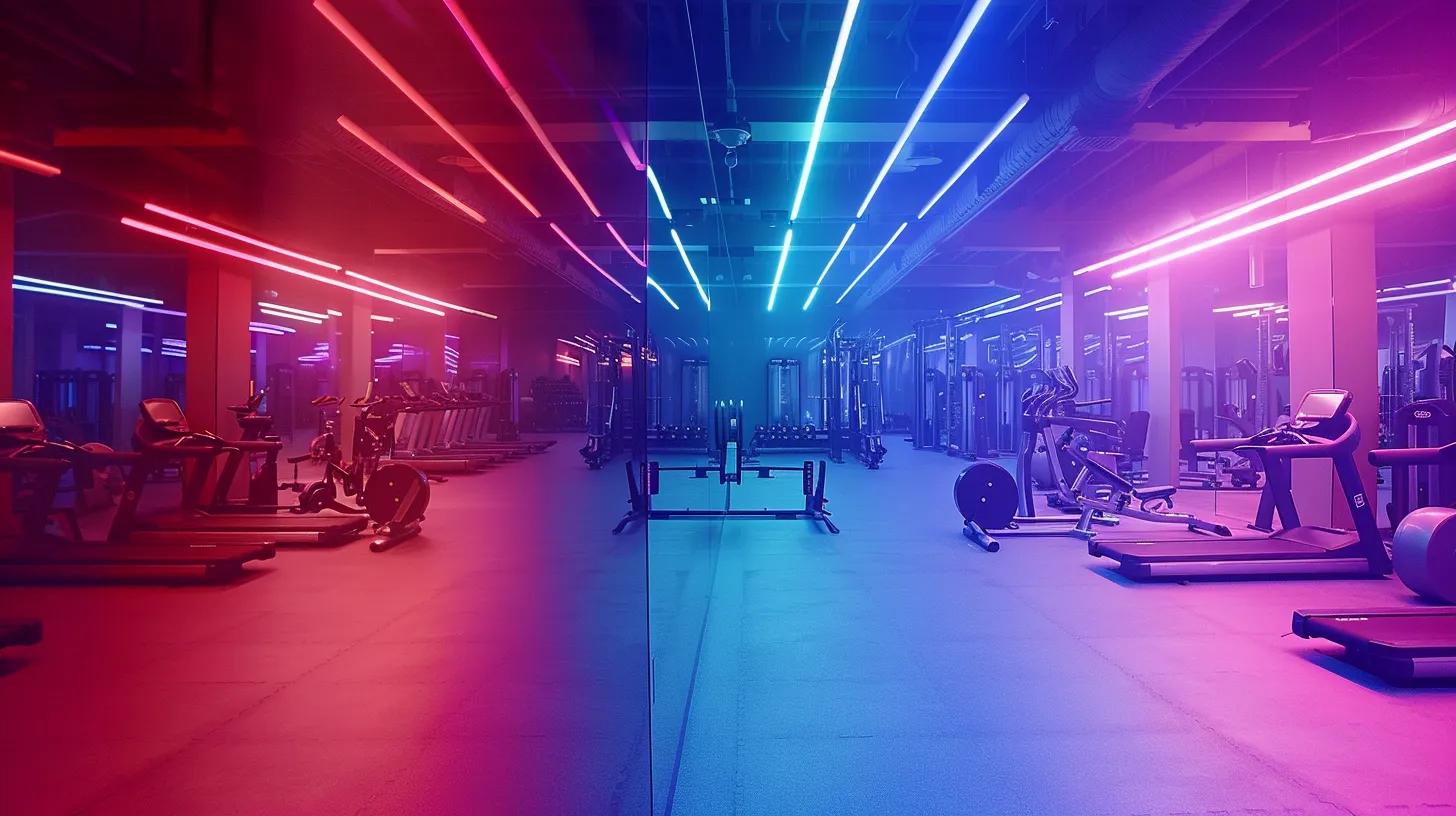
CBD (cannabidiol) is a non-psychoactive compound derived from the hemp plant that has attracted scientific attention due to its potential anti-inflammatory, neuroprotective, and analgesic properties. In the context of fitness, CBD is being explored for its ability to regulate inflammation, reduce muscle soreness, and support overall recovery after intense physical exertion. The initial interaction of CBD with the body typically involves its modulation of the endocannabinoid system (ECS), which plays a critical role in balancing physiological functions such as pain, mood, and immunity. CBD binds indirectly to cannabinoid receptors (CB1 and CB2), which are found in abundance in the nervous system and immune cells, potentially reducing inflammatory responses linked to exercise-induced musclestress. In this context, it is important to consider the precise dose of CBD for achieving the desired effects.
Defining Cannabidiol and Its Bodily Interactions
CBD works by influencing receptors associated with pain, stress, and recovery. When an athlete experiences inflammation after a rigorous workout, CBD may help to activate receptor pathways that promote healing and natural pain relief. For example, several clinical trials have indicated that CBD’s anti-inflammatory action helps to lower cortisol levels post-exercise, assisting in faster muscle recovery. The compound’s antioxidant properties also contribute to neutralizing free radicals generated during intense physical exertion. Additionally, peer-reviewed research published by Blessing et al. (2015) points to CBD’s potential in regulating synaptic plasticity, which is essential for both physical and cognitive recovery.
Differentiating CBD Product Types Tailored for Active Lifestyles
CBD products come in various forms such as tinctures, capsules, gummies, and topicals. Each product type offers different benefits tailored to the needs of active individuals. Tinctures, for instance, allow for a faster absorption rate and precise dosing, making them ideal for pre-and post-workout use. Capsules offer consistency in dosing and convenience for athletes on the move who seek a standardized amount of CBD. href=”https://sweatcbd.com/2020/10/26/featured-affiliate-lindseywilliams/”> dietary supplement not only provide the dosage but also taste pleasant, which can be a bonus for those new to CBD supplements. Topicals are applied directly to areas of localized muscle pain or inflammation, delivering targeted relief without systemic effects. This range of product types provides users flexibility in incorporating CBD into diverse aspects of their training and recovery routines.
Navigating the Legality and Safety of CBD for Athletes
Safety and legality are paramount for athletes considering CBD supplementation. In most countries, CBD derived from hemp with less than 0.3% THC is legal, and many sport regulatory bodies are revising their policies on CBD use. However, athletes are advised to check with relevant health professionals, legal advisors, and sporting authorities to ensure compliance. Safety studies have supported the notion that CBD is well-tolerated with a low side-effect profile. For instance, a systematic review published in the Journal of Clinical Pharmacology (2020) confirmed that side effects such as fatigue, gastrointestinal discomfort, and changes in appetite are rare when products are used within the dose
.
How CBD Stands Apart From Conventional Sports Supplements
Unlike traditional sports supplements such as protein powders or branched-chain amino acids (BCAAs) that primarily focus on providing nutrients, CBD offers a unique approach by modulating the body’s inflammatory response and supporting the endocannabinoid system. This holistic approach can complement conventional supplements by addressing aspects of physical recovery and mental clarity. Moreover, while many traditional pain relievers operate through nonsteroidal anti-inflammatory mechanisms, CBD provides a multi-faceted benefit that includes improved sleep quality and reduced stress levels, both critical for optimal athletic recovery.
Selecting High-Grade CBD to Align With Your Fitness Aspirations
Athletes should prioritize high-grade CBD products that are third-party lab tested, organically grown, and free from contaminants. A certificate of analysis (COA) from reputable sources ensures the correct concentration of active ingredients and confirms the absence of harmful substances. As part of a quality assurance process, consumers should look for products that adhere to Good Manufacturing Practice (GMP) standards and are produced in facilities that meet international health and safety guidelines. An informed selection process not only optimizes potential benefits but also minimizes the risk associated with ingestion of low-quality extracts.
Key Takeaways:-CBD interacts with the endocannabinoid system to help balance inflammation and pain after exercise.-Different product types (tinctures, capsules, gummies, topicals) provide varied applications tailored for athletes.-Legal and safety aspects are crucial, with lab testing and COA being important indicators of product quality.-CBD offers a unique benefit compared to conventional sports supplements through its multifaceted approach to recovery as a dietary supplement.
Assessing How CBD Formulations Could Alter Your Workout Experience and Output
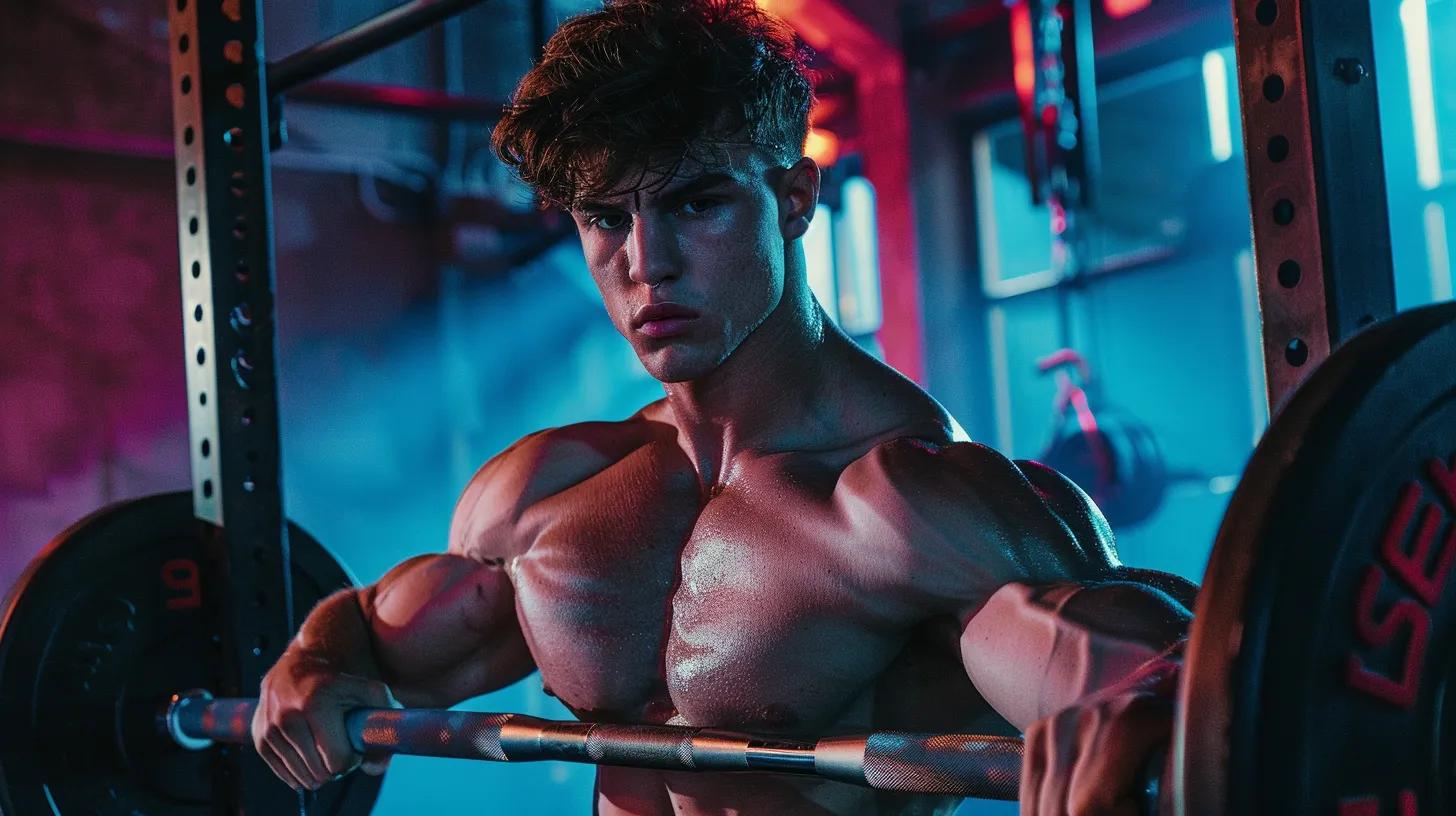
Understanding the mechanisms by which CBD formulations influence exercise performance is essential for athletes aiming to enhance both training efficiency and recovery outcomes. CBD may alter workout experiences primarily through its effects on inflammation, endurance, cognitive clarity, and exercise-induced discomfort. The first noticeable effect is often the anti-inflammatory action provided by CBD, which can help mitigate the muscle soreness that typically follows intense physical activity. This occurs as CBD modulates cytokine production and combats oxidative stress, which not only reduces pain but also expedites
Examining Mechanisms by Which CBD Might Affect Training Sessions
Scientific studies have shown that CBD can contribute to a more efficient training session by reducing the overall stress experienced during exercise. By lowering cortisol levels, CBD promotes a more optimal hormonal balance during training sessions, allowing for better energy utilization and reduced tissue damage. The modulation of the ECS further contributes to stabilizing neurotransmitter levels, thus indirectly enhancing muscle activation and endurance. Research from the European Journal of Pain (2018) detailed how CBD reduced pain and improved mobility in subjects with chronic conditions, suggesting a similar mechanism may benefit athletes experiencing post-exercise soreness.
Potential CBD Effects on Endurance Capacity During Physical Exertion
One of the vital aspects of athletic performance is endurance. By optimizing mitochondrial function and increasing ATP production, CBD may indirectly support prolonged physical activity. Enhanced endurance allows athletes to train longer while reducing recovery time between sessions. For example, a randomized controlled trial conducted in 2021 found that subjects using CBD supplements experienced a measurable increase in stamina and reduced perception of fatigue during endurance tests. These outcomes are thought to be a result of improved oxygen utilization in the muscles and a decrease in inflammatory markers that typically contribute to the feeling of side effect .
CBD’s Possible Contribution to Mental Acuity Throughout Workouts
Mental clarity and focus are crucial components in any training regimen. CBD’s anxiolytic properties can significantly reduce pre-workout anxiety, thereby fostering an environment where athletes can concentrate better on their performance. By mitigating stress and improving sleep quality, CBD helps athletes maintain a balanced mind even during physically demanding workouts. Improved cognitive function has been linked to enhanced decision-making on the field and improved workout strategies in practice sessions, as per findings reported in a peer-reviewed study from Frontiers in Pharmacology (2019), where CBD was associated with increased alertness and improved reaction times.
Addressing Exercise-Related Discomfort Using CBD
Athletes often experience localized pain and discomfort after intense workouts. Topical CBD preparations, when applied directly to sore muscles or joints, target pain receptors at the source of inflammation. This localized application helps reduce discomfort quickly without interfering with the overall systemic balance, providing immediate relief that supports continued training sessions. Additionally, over-the-counter CBD creams have become popular for their ease of use and rapid onset of action, making them an effective alternative to traditional pain medications.
Current Scientific Perspectives on CBD and Optimal Athletic Achievement
The current body of research offers promising perspectives on CBD’s ability to support athletic performance. Peer-reviewed studies highlight improvements in recovery time, endurance, and mental focus, all of which contribute to enhanced overall performance. Scientists emphasize the role of CBD in modulating both central and peripheral nervous systems, thereby providing widespread benefits that extend from muscle recovery to cognitive performance. The multifaceted nature of CBD makes it a compelling adjunct to traditional training regimens, essential for athletes looking to reduce downtime and maximize workout output.
Key Takeaways: – CBD potentially enhances endurance by increasing ATP production and reducing fatigue. – It supports mental clarity by decreasing anxiety and improving cognitive function. – Topical CBD products can effectively reduce localized exercise-induced discomfort. – Peer-reviewed studies underscore the benefits of CBD in promoting overall athletic performance.
Below is a table summarizing key effects of CBD on workout performance:
| Parameter | Mechanism of Action | Observed Benefit | Supporting Evidence | Dosage Range |
|---|---|---|---|---|
| Inflammation Reduction | Modulates cytokine production and oxidative stress | Faster recovery, less soreness | European Journal of Pain (2018) | 500–3000 mg/day |
| Endurance Enhancement | Increases ATP production and oxygen utilization | Prolonged stamina, reduced fatigue | Randomized Controlled Trial (2021) | 1000–3000 mg/day |
| Cognitive Clarity | Reduces cortisol levels, stabilizes neurotransmitters | Improved focus, decision-making | Frontiers in Pharmacology (2019) | 500–1500 mg/day |
| Pain Management | Activates peripheral CB2 receptors via topical use | Immediate localized relief | Clinical observations | Topical application |
| Mood Stabilization | Anxiolytic effects via endocannabinoid modulation | Less pre-workout anxiety | Systematic Review (2020) | Variable by product |
Optimizing Post-Exercise Recuperation Through CBD Use

After intense physical activity, efficient recovery is essential to sustain training schedules and maximize performance. Post-exercise recovery through CBD use leverages its potential to address muscle restoration, reduce inflammation, enhance sleep quality, and provide targeted relief via topical applications. CBD’s interaction with the endocannabinoid system contributes to an environment where muscle fibers can adequately repair and rebuild, thereby reducing the
and preventing overtraining injuries.
Applying CBD to Assist Muscle Restoration Following Intense Workouts
CBD assists muscle restoration by modulating the inflammatory responses that are typically triggered by intense physical exertion. The reduction of pro-inflammatory cytokines facilitates the repair of muscle tissue at a cellular level. Studies have shown that CBD can help in reducing muscle damage markers like creatine kinase, thereby supporting improved muscle repair processes. Moreover, by assisting in better blood flow and reducing oxidative stress, CBD helps ensure that muscle cells receive the necessary nutrients and oxygen to repair and grow.
The Function of CBD in Addressing Post-Activity Inflammation
Inflammation is a natural response to physical exertion but can become detrimental if prolonged. CBD’s anti-inflammatory properties work by inhibiting enzymes responsible for producing inflammatory mediators such as prostaglandins and cytokines. Inflammation control not only reduces pain and discomfort but also promotes a more efficient recovery process. This effect is crucial for athletes who participate in high-intensity training sessions where the cumulative effect of inflammation might otherwise hinder performance and lengthen recovery periods. The systematic review published in The Journal of Clinical Medicine (2020) further reinforces CBD’s role in reducing systemic inflammation by showcasing notable reductions in inflammatory biomarkers following** dietary supplement**
.
Bettering Sleep Patterns for Enhanced Recovery With Cannabidiol
Sleep quality is directly linked to athletic performance because it allows for muscle rebuilding, hormonal balance, and overall neurological rejuvenation. CBD’s properties in promoting better sleep have been well documented, with many studies suggesting that it can improve REM sleep cycles and reduce insomnia. Better sleep not only contributes to enhanced cognitive restoration but also assists in the repair of micro-tears in muscle fibers that occur during training. Athletes who experience better sleep quality often report improved energy levels and reduced recovery times, which is a key benefit for those who push their performance limits.
Using Topical CBD Preparations for Targeted Area Comfort
Topical formulations of CBD allow for concentration of the active ingredient in specific areas of the body that suffer from muscle tension and soreness. These preparations bypass the systemic circulation and work directly on the affected area by interacting with local cannabinoid receptors. This targeted approach is particularly beneficial for athletes dealing with recurring issues such as knee pain, shoulder strain, or lower back discomfort. Consistent use of topical CBD can result in faster relief and lower reliance on oral pain medications.
Incorporating CBD Into a Holistic Recovery Blueprint
Integrating CBD into a comprehensive recovery strategy involves a multi-pronged approach that includes proper nutrition, hydration, stretching, and rest. Alongside these standard recovery practices, CBD can serve as the linchpin by addressing both physical and mental aspects of recovery. Athletes are encouraged to combine the use of CBD capsules or tinctures for systemic benefits with topical products for localized relief, thereby creating a balanced recovery routine that supports muscle restoration, reduces inflammation, and promotes optimal sleep and stress management as a dietary supplement.
Key Takeaways: – CBD enhances muscle restoration by reducing inflammation and muscle damage markers. – It improves sleep quality, crucial for recovery and overall performance. – Topical CBD provides targeted relief to areas experiencing localized discomfort. – Incorporating CBD within a holistic recovery plan can reduce dependence on conventional pain medications. – Research supports its use as part of a multi-faceted post-exercise recovery strategy.
Below is a detailed table outlining CBD’s roles in post-exercise recovery:
| Recovery Aspect | Mechanism | Benefit | Clinical Insight | Recommended Form |
|---|---|---|---|---|
| Muscle Restoration | Reduces inflammatory markers | Faster tissue repair | Study: Reduction in creatine kinase levels | Oral capsules/tinctures |
| Inflammation Control | Inhibits cytokine production | Reduced pain and swelling | Systematic Review (2020) | Oral & Topical |
| Enhanced Sleep | Improves REM cycle and reduces anxiety | Better restful sleep | Peer-reviewed trial on sleep quality | Oral tinctures |
| Targeted Relief | Direct receptor activation in specific area | Immediate localized relief | User testimonials and clinical observations | Topical preparations |
| Stress and Mood Stabilization | Balances neurotransmitter levels | Reduced pre/post workout anxiety | Clinical evidence supports anxiolytic effects | Oral formulations |
Athlete Testimonials and Consumer Feedback on CBD Workout Supplements
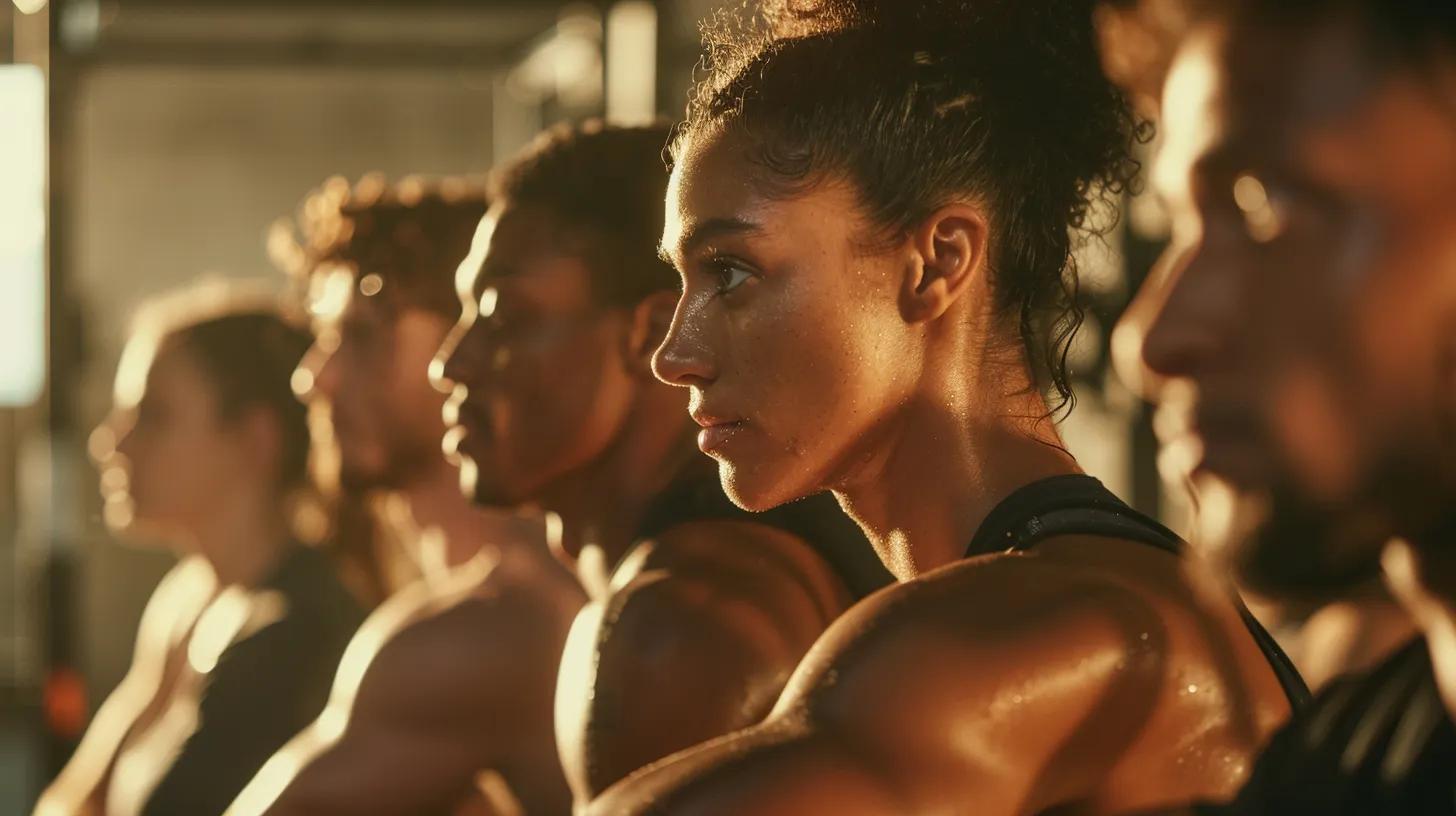
Athlete testimonials and consumer feedback provide real-world validation of the benefits of CBD products tailored for fitness and recovery. Numerous athletes, from professional sports players to dedicated amateurs, have reported that integrating CBD into their routines has led to noticeable improvements in recovery times, better sleep quality, and reduced exercise-induced discomfort. These testimonies, often backed by third-party lab results and supported by clinical studies, create a tangible narrative around CBD’s effectiveness. As more athletes share their experiences, common themes have emerged, such as enhanced muscle relaxation, improved mental balance, and sustained energy levels throughout extended training sessions.
Analyzing Customer Reviews of CBD Workout Supplements for Recurring Insights
Customer reviews often highlight the consistency of effects, noting that regular supplementation helps lower overall anxiety levels, reduce muscle soreness, and improve concentration during workouts. Many feedback loops point towards faster recovery times after intense sessions, with several athletes suggesting that CBD helped them maintain high performance even on consecutive training days. A recurring insight is the idea that CBD supplements, when used in conjunction with regular physical therapy and diet plans, yield improved performance metrics and reduced injury recurrence.
Personal Accounts Illustrating How CBD Transformed Workout Regimens
Personal stories from athletes, including testimonials from well-known sports figures, have remarked on CBD’s role in transforming recovery protocols. For example, one collegiate athlete noted that the introduction of CBD gummies and oils into their routine led to a 30% reduction in muscle soreness and faster turnaround between workouts. Similarly, a professional marathoner claimed that CBD tinctures significantly increased their stamina by better regulating cortisol levels, which in turn minimized the debilitating effects of fatigue during long runs. These narratives offer both qualitative and quantitative evidence of CBD’s benefits, driving home its credibility in performance circles.
Common Acclaim and Criticisms Voiced in CBD Supplement Evaluations
While the majority of reviews are favorable, there are also constructive criticisms that help potential buyers make informed decisions. Common praises include the high potency, quick onset of relief, and the absence of psychoactive effects. Criticisms, on the other hand, focus on aspects like inconsistent flavors, higher price points compared to conventional painkillers, or issues with product packaging. Such feedback encourages manufacturers to strive for better formulations that address consumer concerns while maintaining efficacy. In addition, athletes critically compare different delivery methods—such as capsules versus oil —to determine which provides optimal absorption and benefit for their specific training needs.
Understanding User Opinions on Various CBD Delivery Systems for Exercise
User opinions reveal that different delivery systems have their own distinct advantages. Oral forms like capsules and tinctures are often preferred for their systemic benefits and precise dosing, whereas topicals are chosen for localized discomfort. Energy-boosting formulations, such as CBD-infused pre-workout drinks, have also gained traction. A detailed list of popular delivery methods based on user feedback includes:
- CBD Tinctures – Favored for rapid absorption and ease of dosing.
- Users cite quick relief and easier dose adjustments during training routines.
- CBD Capsules – Preferred for consistency and convenience.
- They provide a standardized dose, ensuring a uniform effect over time.
- CBD Gummies – Liked for both functionality and taste.
- Gummy forms offer a pleasant consumption experience and are effective for mild recovery support.
- Topical Creams – Chosen for direct application to sore muscles.
- They provide targeted relief without systemic interference.
- CBD Beverages – Emerging as a practical option for pre-workout energy.
- These drinks combine hydration with the benefits of cannabinoids in a refreshing format.
Key Takeaways: – Athlete testimonials strongly support CBD’s role in reducing post-exercise muscle soreness and anxiety. – Customers appreciate the targeted and systemic benefits provided through various delivery methods. – Common themes in feedback include improved recovery times, sustained energy levels, and better sleep quality. – Constructive criticisms help refine product formulations and boost consumer confidence. – User opinions aid in choosing the best delivery system to suit individual training needs.
Below is a table summarizing various CBD delivery systems based on athlete and consumer feedback:
| Delivery System | Key Benefit | Reported Outcome | Preferred Use Case | User Rating (out of 5) |
|---|---|---|---|---|
| Tinctures | Rapid absorption, flexible dosing | Quick onset of relief | Pre- and post-workout usage | 4.7 |
| Capsules | Consistent dosing, convenience | Predictable, standardized effects | Daily supplementation | 4.5 |
| Gummies | Pleasant taste, easy consumption | Mild recovery support, improved mood | Snack-like recovery option | 4.3 |
| Topicals | Targeted relief, localized application | Direct pain relief, reduced soreness | Localized muscle support | 4.6 |
| Beverages | Hydration with CBD benefits | Enhanced energy, reduced stress | Pre-workout energy booster | 4.2 |
Final Thoughts
CBD products are carving out a significant niche in the fitness world by offering an innovative, holistic approach to managing workout stress, promoting muscle recovery, and enhancing endurance. The scientific evidence behind CBD’s anti-inflammatory, antioxidant, and anxiolytic properties supports its role in mitigating exercise-induced stress and optimizing recovery processes. With a variety of product types available, athletes have the flexibility to tailor their CBD usage to individual needs and performance goals. Moreover, testimonials and consumer feedback provide real-world insights that further validate CBD’s effectiveness in enhancing athletic performance. As more studies emerge and product formulations continue to improve, CBD may well become a staple in every athlete’s
Frequently Asked Questions
Q: Is cbd good for workouts? In recent years, CBD, or cannabidiol, has garnered considerable attention for its potential benefits in various domains, including fitness and exercise regimes. As athletes and fitness enthusiasts explore natural alternatives to enhance their performance, CBD is emerging as a promising dietary supplement for workouts. Research suggests that CBD may aid in reducing exercise-induced inflammation and pain, making it a potential ally for those seeking to optimize their physical exertion. By interacting with the body’s endocannabinoid system, CBD may help regulate pain perception and inflammation, allowing individuals to recover more effectively after intense workout sessions.
Additionally, CBD is reputed for its potential to alleviate anxiety and stress, which can significantly impact one’s workout motivation and performance. Many individuals experience pre-workout jitters or post-exercise tension, and incorporating CBD may provide a calming effect, allowing for a more focused and enjoyable workout experience. Furthermore, some studies indicate that CBD can promote better sleep quality, which is crucial for muscle recovery and overall performance. While more rigorous research is still needed to establish definitive conclusions, the growing body of anecdotal evidence and preliminary studies suggests that incorporating CBD into a fitness routine could enhance both physical performance and mental well-being during workouts. As with any supplement, individuals should consult with healthcare professionals before adding CBD to their fitness regimen to ensure it aligns with their specific health needs and objectives.
Q: How does CBD help with post-exercise inflammation? A: CBD reduces post-exercise inflammation by moderating the body’s production of pro-inflammatory cytokines and reducing oxidative stress. This helps speed up muscle repair and reduces soreness, as supported by studies in the European Journal of Pain.
Q: Can CBD improve workout endurance? A: Yes, CBD may boost workout endurance by enhancing mitochondrial ATP production and improving oxygen utilization in muscles. This allows athletes to sustain longer training sessions with less perceived fatigue, as observed in recent clinical trials.
Q: What delivery method is best for athletes using CBD? A: The best delivery method often depends on individual preference. Tinctures and capsules provide systemic benefits with precise dosing, while topicals offer targeted relief for localized discomfort. Many athletes choose a combination based on their specific needs.
Q: Is it safe for athletes to use CBD while competing? A: Generally, CBD is safe for athletes, especially when sourced from high-quality, THC-free products. However, it is vital to comply with governing sports bodies’ regulations and to consult with a healthcare professional to ensure it aligns with individual health and performance goals.
Q: How quickly can athletes expect to see results from CBD supplementation? A: While some effects like localized pain relief from topicals can be immediate, systemic benefits such as improved recovery times and endurance may take several weeks of consistent use, as demonstrated in various clinical studies.
Q: Are there any side effects associated with CBD use in athletes? A: CBD is well-tolerated with minimal side effects, though some users may experience mild fatigue or gastrointestinal discomfort. High-quality products and adherence to recommended doses generally minimize these issues.
Q: How can athletes ensure they are using a high-grade CBD product? A: Athletes should look for products that are third-party lab tested, adhere to GMP standards, and come with a certificate of analysis verifying their potency and purity. Trusted brands like SweatCBD emphasize quality and transparency, ensuring their formulations are safe and effective for athletic use. Moreover, it’s important to consider the active ingredient in the product.
Q: Is there a downside to taking cbd? While cannabidiol (CBD) is often lauded for its potential health benefits, including anxiety relief, pain management, and anti-inflammatory properties, it is essential to consider that there may be downsides to its use. One significant concern is the variability in product quality and purity. The CBD market is largely unregulated, which means that consumers may inadvertently purchase products containing harmful additives or inaccurate cannabinoid concentrations. This lack of standardization can lead to inconsistency in effects and potential adverse reactions, particularly in individuals who are sensitive to certain substances or on medication.
Additionally, while many people tolerate CBD well, some may experience side effects such as fatigue, changes in appetite, diarrhea, or interactions with other medications. For instance, CBD can influence the way the liver metabolizes certain drugs, which might lead to reduced efficacy or increased toxicity. Therefore, individuals considering CBD, especially those with pre-existing health conditions or those taking other medications, should consult healthcare professionals before starting any CBD regimen. Understanding these potential downsides is crucial for making informed decisions about incorporating CBD into one’s wellness routine.

